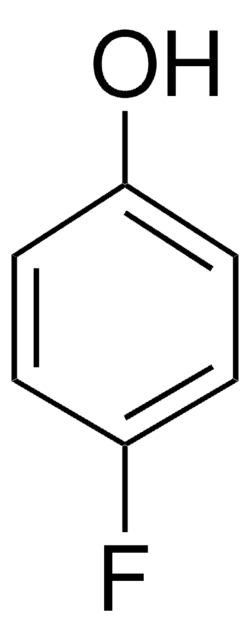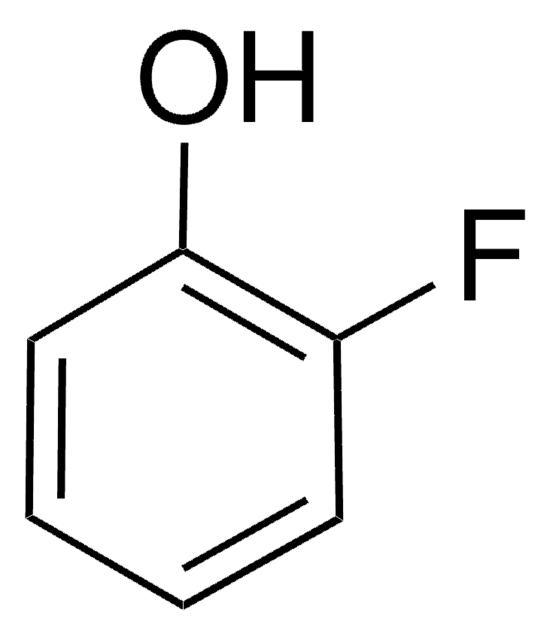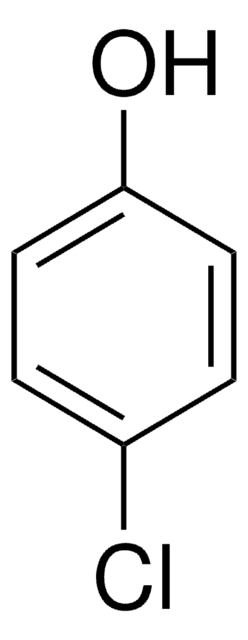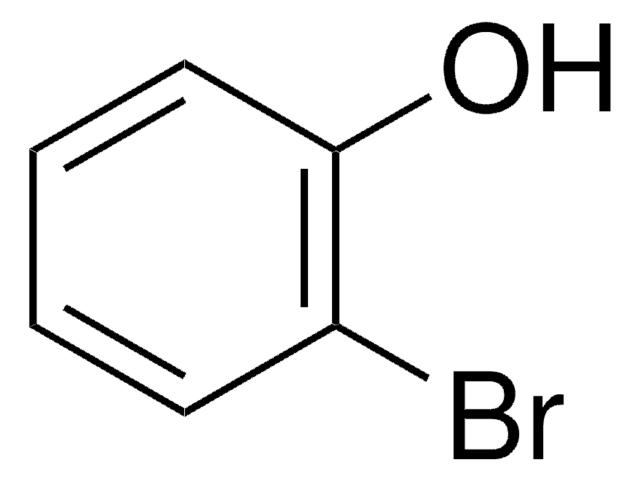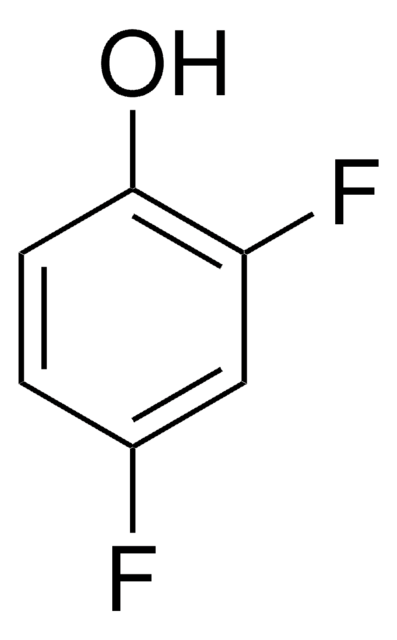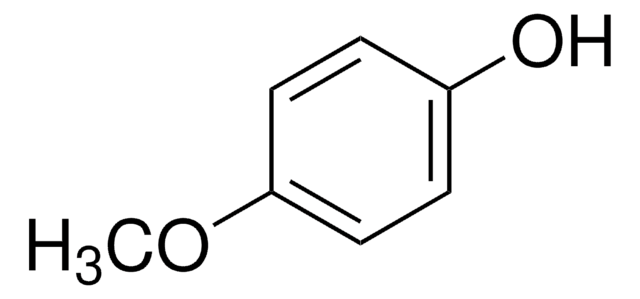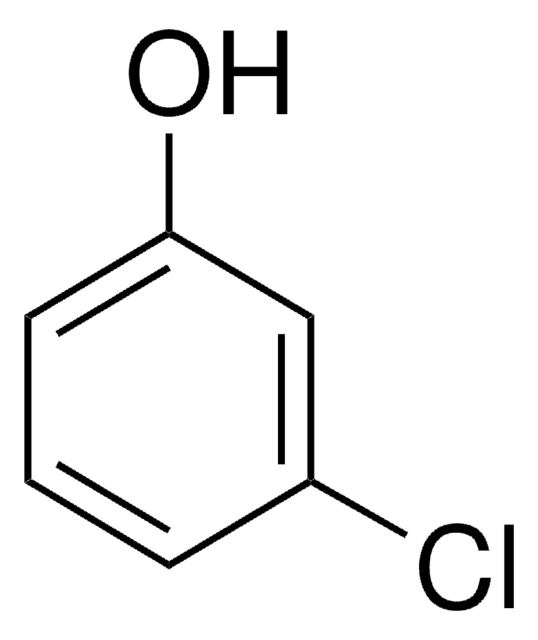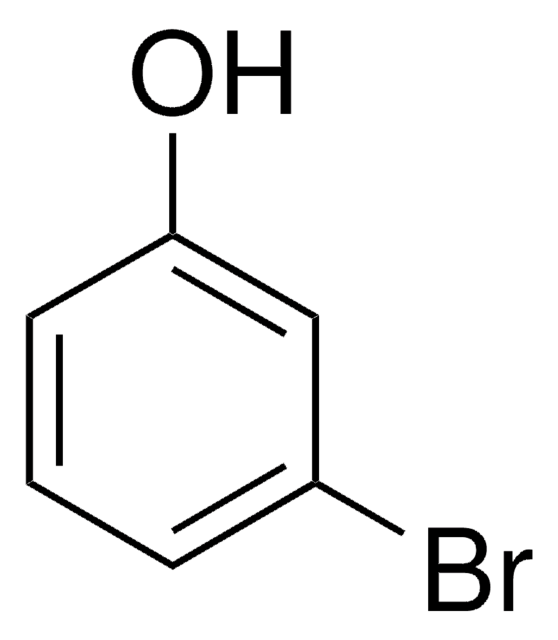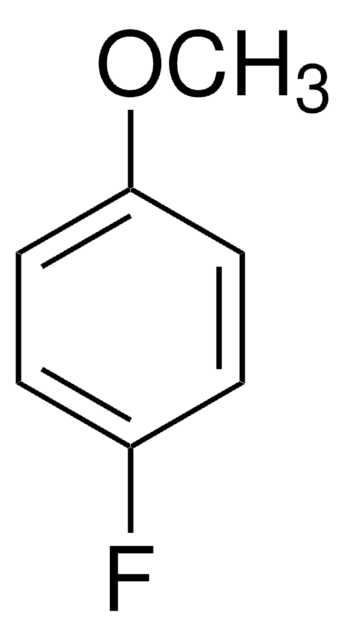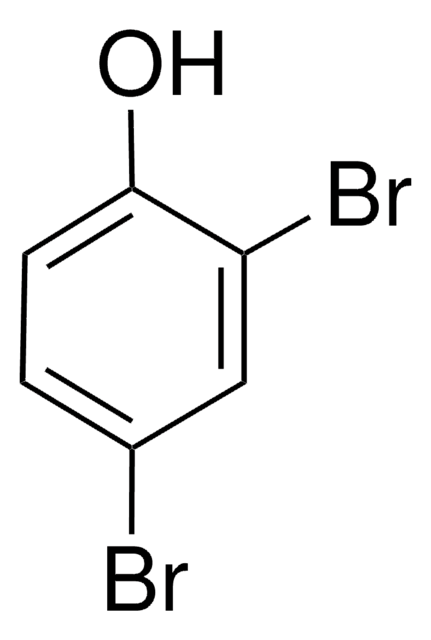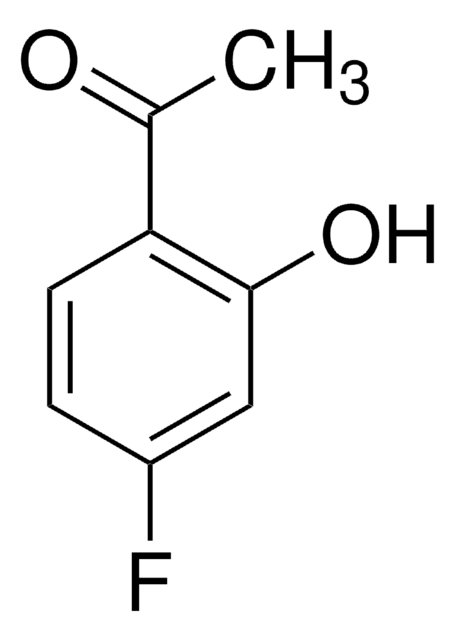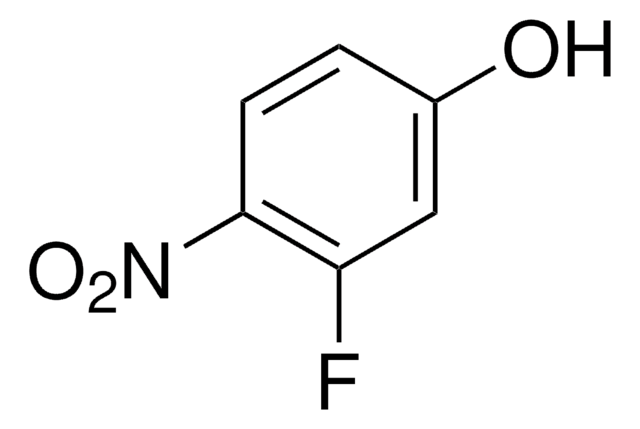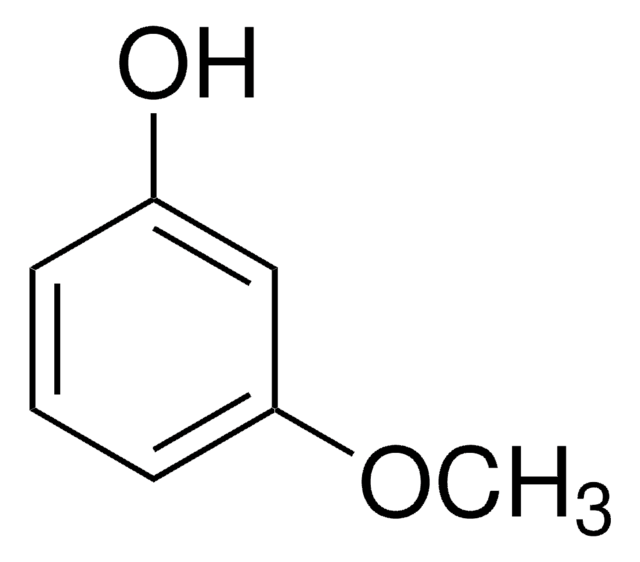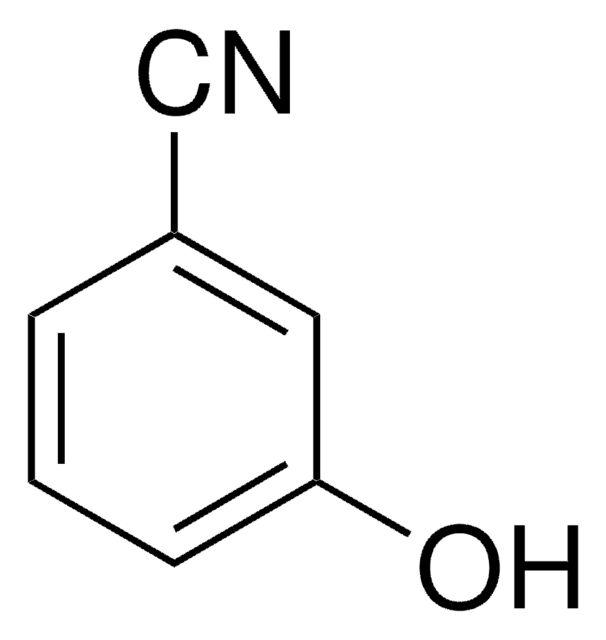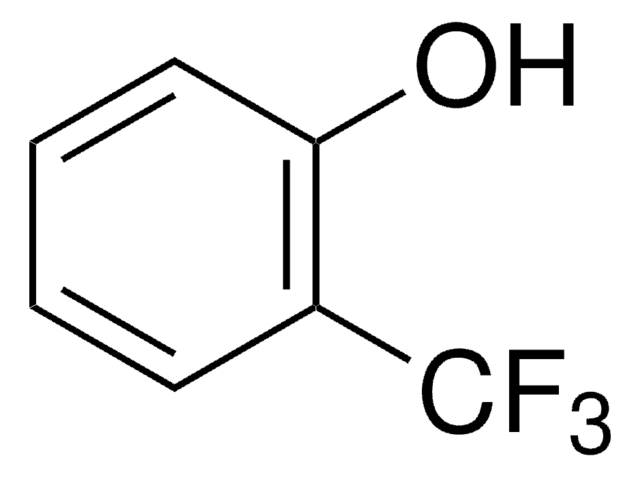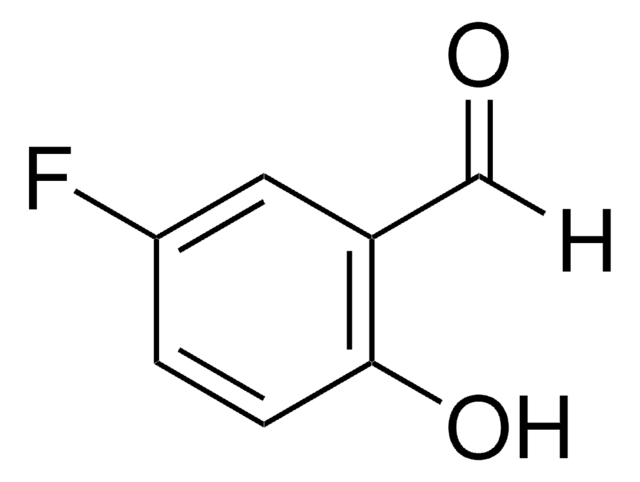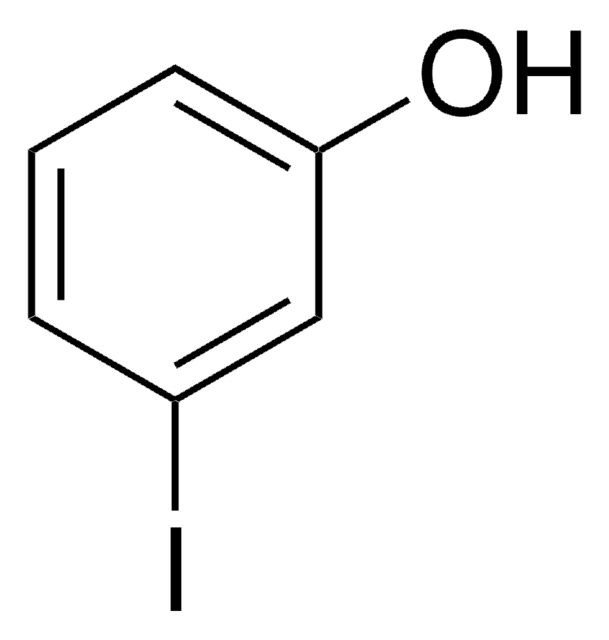About This Item
Recommended Products
Quality Level
assay
98%
form
liquid
refractive index
n20/D 1.514 (lit.)
bp
178 °C (lit.)
mp
8-12 °C (lit.)
density
1.238 g/mL at 25 °C (lit.)
SMILES string
Oc1cccc(F)c1
InChI
1S/C6H5FO/c7-5-2-1-3-6(8)4-5/h1-4,8H
InChI key
SJTBRFHBXDZMPS-UHFFFAOYSA-N
Looking for similar products? Visit Product Comparison Guide
signalword
Warning
Hazard Classifications
Acute Tox. 4 Dermal - Acute Tox. 4 Inhalation - Acute Tox. 4 Oral - Aquatic Chronic 3 - Eye Irrit. 2 - Skin Irrit. 2
wgk_germany
WGK 3
flash_point_f
closed cup
flash_point_c
closed cup
ppe
Eyeshields, Faceshields, Gloves, type ABEK (EN14387) respirator filter
Certificates of Analysis (COA)
Search for Certificates of Analysis (COA) by entering the products Lot/Batch Number. Lot and Batch Numbers can be found on a product’s label following the words ‘Lot’ or ‘Batch’.
Already Own This Product?
Find documentation for the products that you have recently purchased in the Document Library.
Customers Also Viewed
Our team of scientists has experience in all areas of research including Life Science, Material Science, Chemical Synthesis, Chromatography, Analytical and many others.
Contact Technical Service